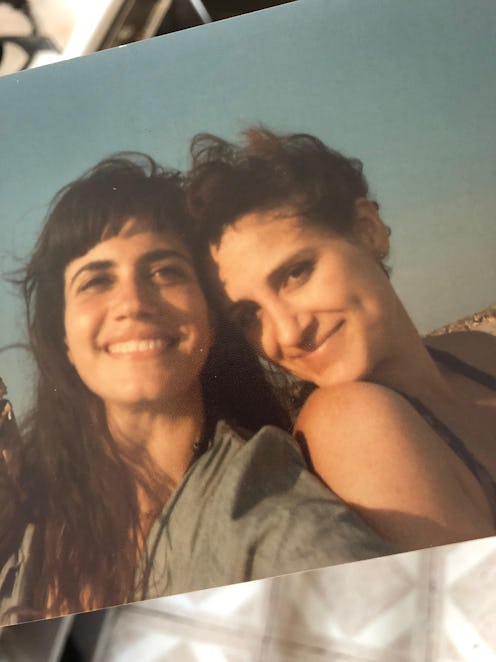News
Without This Woman I Met Via Chatroom, I Wouldn't Have My Career

We met our junior year of high school. The year was 1995, the date was April 20, the time was 4:20. She hates when I tell that part of the story.
The plan was to meet at Strawberry Fields in Central Park. It wasn’t our plan; we were each wing-women for classmates who had met on a Grateful Dead chatroom. This was their first offline introduction.
The two of us watched our Deadhead friends size each other up and quickly lose interest. She lounged on the blanket and extended her hand to me. That is how I first learned that Jessica Dimmock existed, and that life could be different.
Within a few moments of meeting her, I felt like I could be the secret person I’d been stuffing down.
At the time, I was head-down in an identity crisis that was physically taxing. I wore padded bras and platform foam sandals. I blow-dried my curly hair straight, sucked in my cheeks for a more angular resting face, and puttied the cuts I’d made on my arms with cover-up. I was not finding myself. I was lost.
Jes was in her hippie phase. It suited her. Her hair was wild and thick, her clothing loose and Tibetan store-bought. Within a few moments of meeting her, I felt like I could be the secret person I’d been stuffing down.
I introduced her to a grainy VHS tape of Harold and Maude and the part where Bud Cort says, “I haven’t lived. I’ve died a few times.” She played me “A Case of You.”
Sitting in her bedroom, Joni Mitchell singing “Part of you pours out of me,” surrounded by photographs Jes had taken in Nepal, I saw a glimpse of how our future might look, and for the first time in a long time, I didn’t want to die.
Jessica Dimmock makes things, and she taught me how to do the same. Most recently, she co-created and co-directed Netflix’s critically-acclaimed documentary series Flint Town. She has been compared to Diane Arbus and Inge Morath, won a 2017 World Press Photo award, and, as I just discovered when I looked at her resumé, earned an Emmy nomination in 2012. She is a big deal. She is not a person who acts like it.
Still, through the years, I’ve learned more from her about living creatively than anyone else.
She taught me about supporting other women. About embracing my obsessions. Shortly after grad school, Jes became a leading photojournalist in a field largely dominated by men. To this day, she regularly mentors young women who follow her work, connecting them to editors, providing feedback, championing their projects. She never makes too big of a deal about it. She just does it.
We don’t work in the same medium, but we are equally obsessed with each other’s interests. As a result, we’ve worked together both onscreen and off on the feature film Without. She shot the trailer of my first book, and read multiple rough drafts of my second. She recently photographed research I’d collected for my memoir, You All Grow Up and Leave Me.
Sometimes, I compare myself to her. I wish I were as successful, well-traveled, brave, impactful. Then I remember that this is not some gift she was granted. It was a choice she made.Remembering this compels me to make choices of my own, to work harder, to recall all the lessons she’s taught me over the years.
Joni Mitchell was right. Part of her pours of me, and I hope it always will.
Bustle's "Without This Woman" is a series of essays honoring the women who change — and challenge — us every day.
Without This Woman, I Wouldn't Remember Your Name
Without This Woman Fleeing The Vietnam War, I Wouldn't Have My Life
Without This Woman From A Novel, I Wouldn't Have Changed My Own Story
Without This Woman, I Wouldn't Believe We Can Start A Revolution
Without This Woman, I Couldn’t Have Led The Resistance
Without This Woman, I Wouldn't Have A Closet Full Of Trophies (Or The Confidence To Win Them)